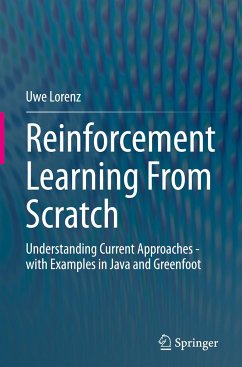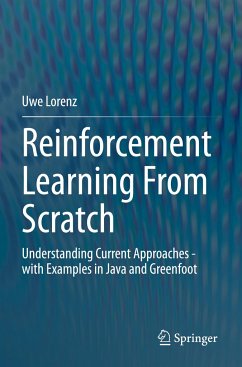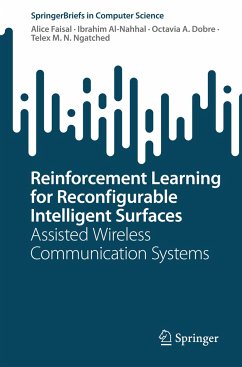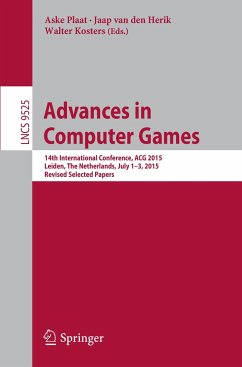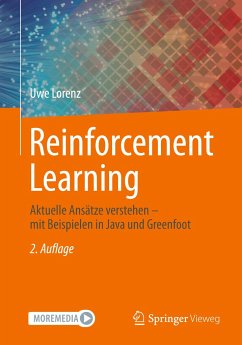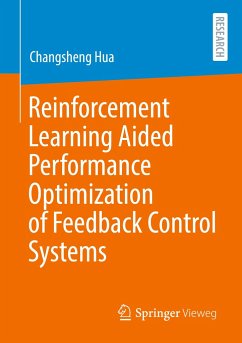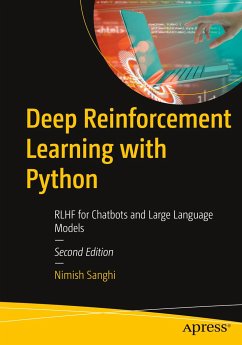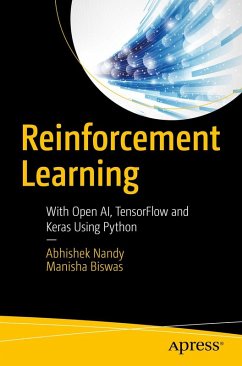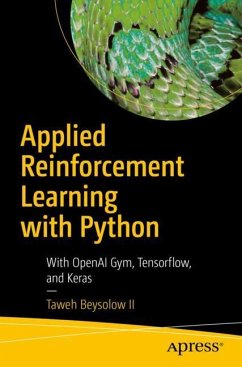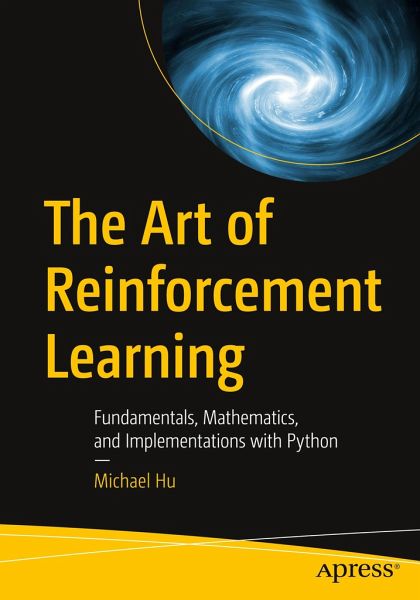
The Art of Reinforcement Learning
Fundamentals, Mathematics, and Implementations with Python

PAYBACK Punkte
23 °P sammeln!
Unlock the full potential of reinforcement learning (RL), a crucial subfield of Artificial Intelligence, with this comprehensive guide. This book provides a deep dive into RL's core concepts, mathematics, and practical algorithms, helping you to develop a thorough understanding of this cutting-edge technology.Beginning with an overview of fundamental concepts such as Markov decision processes, dynamic programming, Monte Carlo methods, and temporal difference learning, this book uses clear and concise examples to explain the basics of RL theory. The following section covers value function appro...
Unlock the full potential of reinforcement learning (RL), a crucial subfield of Artificial Intelligence, with this comprehensive guide. This book provides a deep dive into RL's core concepts, mathematics, and practical algorithms, helping you to develop a thorough understanding of this cutting-edge technology.
Beginning with an overview of fundamental concepts such as Markov decision processes, dynamic programming, Monte Carlo methods, and temporal difference learning, this book uses clear and concise examples to explain the basics of RL theory. The following section covers value function approximation, a critical technique in RL, and explores various policy approximations such as policy gradient methods and advanced algorithms like Proximal Policy Optimization (PPO).
This book also delves into advanced topics, including distributed reinforcement learning, curiosity-driven exploration, and the famous AlphaZero algorithm, providing readers with a detailed accountof these cutting-edge techniques.
With a focus on explaining algorithms and the intuition behind them, The Art of Reinforcement Learning includes practical source code examples that you can use to implement RL algorithms. Upon completing this book, you will have a deep understanding of the concepts, mathematics, and algorithms behind reinforcement learning, making it an essential resource for AI practitioners, researchers, and students.
What You Will Learn
Grasp fundamental concepts and distinguishing features of reinforcement learning, including how it differs from other AI and non-interactive machine learning approachesModel problems as Markov decision processes, and how to evaluate and optimize policies using dynamic programming, Monte Carlo methods, and temporal difference learningUtilize techniques for approximating value functions and policies, including linear and nonlinear value function approximation and policy gradient methodsUnderstand the architecture and advantages of distributed reinforcement learningMaster the concept of curiosity-driven exploration and how it can be leveraged to improve reinforcement learning agentsExplore the AlphaZero algorithm and how it was able to beat professional Go players
Who This Book Is For
Machine learning engineers, data scientists, software engineers, and developers who want to incorporate reinforcement learning algorithms into their projects and applications.
Beginning with an overview of fundamental concepts such as Markov decision processes, dynamic programming, Monte Carlo methods, and temporal difference learning, this book uses clear and concise examples to explain the basics of RL theory. The following section covers value function approximation, a critical technique in RL, and explores various policy approximations such as policy gradient methods and advanced algorithms like Proximal Policy Optimization (PPO).
This book also delves into advanced topics, including distributed reinforcement learning, curiosity-driven exploration, and the famous AlphaZero algorithm, providing readers with a detailed accountof these cutting-edge techniques.
With a focus on explaining algorithms and the intuition behind them, The Art of Reinforcement Learning includes practical source code examples that you can use to implement RL algorithms. Upon completing this book, you will have a deep understanding of the concepts, mathematics, and algorithms behind reinforcement learning, making it an essential resource for AI practitioners, researchers, and students.
What You Will Learn
Grasp fundamental concepts and distinguishing features of reinforcement learning, including how it differs from other AI and non-interactive machine learning approachesModel problems as Markov decision processes, and how to evaluate and optimize policies using dynamic programming, Monte Carlo methods, and temporal difference learningUtilize techniques for approximating value functions and policies, including linear and nonlinear value function approximation and policy gradient methodsUnderstand the architecture and advantages of distributed reinforcement learningMaster the concept of curiosity-driven exploration and how it can be leveraged to improve reinforcement learning agentsExplore the AlphaZero algorithm and how it was able to beat professional Go players
Who This Book Is For
Machine learning engineers, data scientists, software engineers, and developers who want to incorporate reinforcement learning algorithms into their projects and applications.



